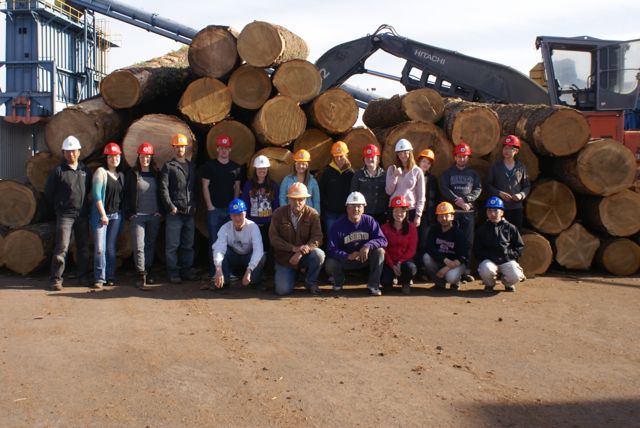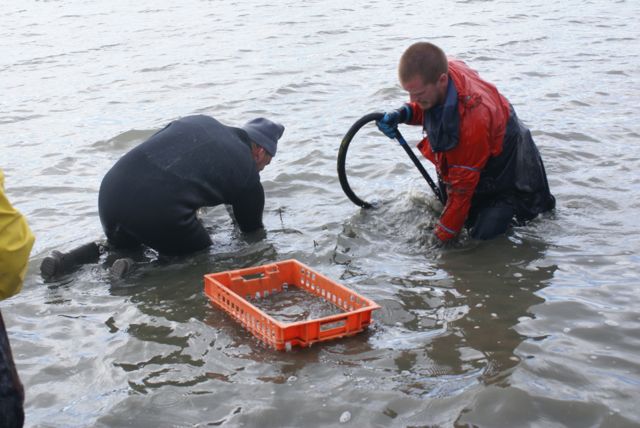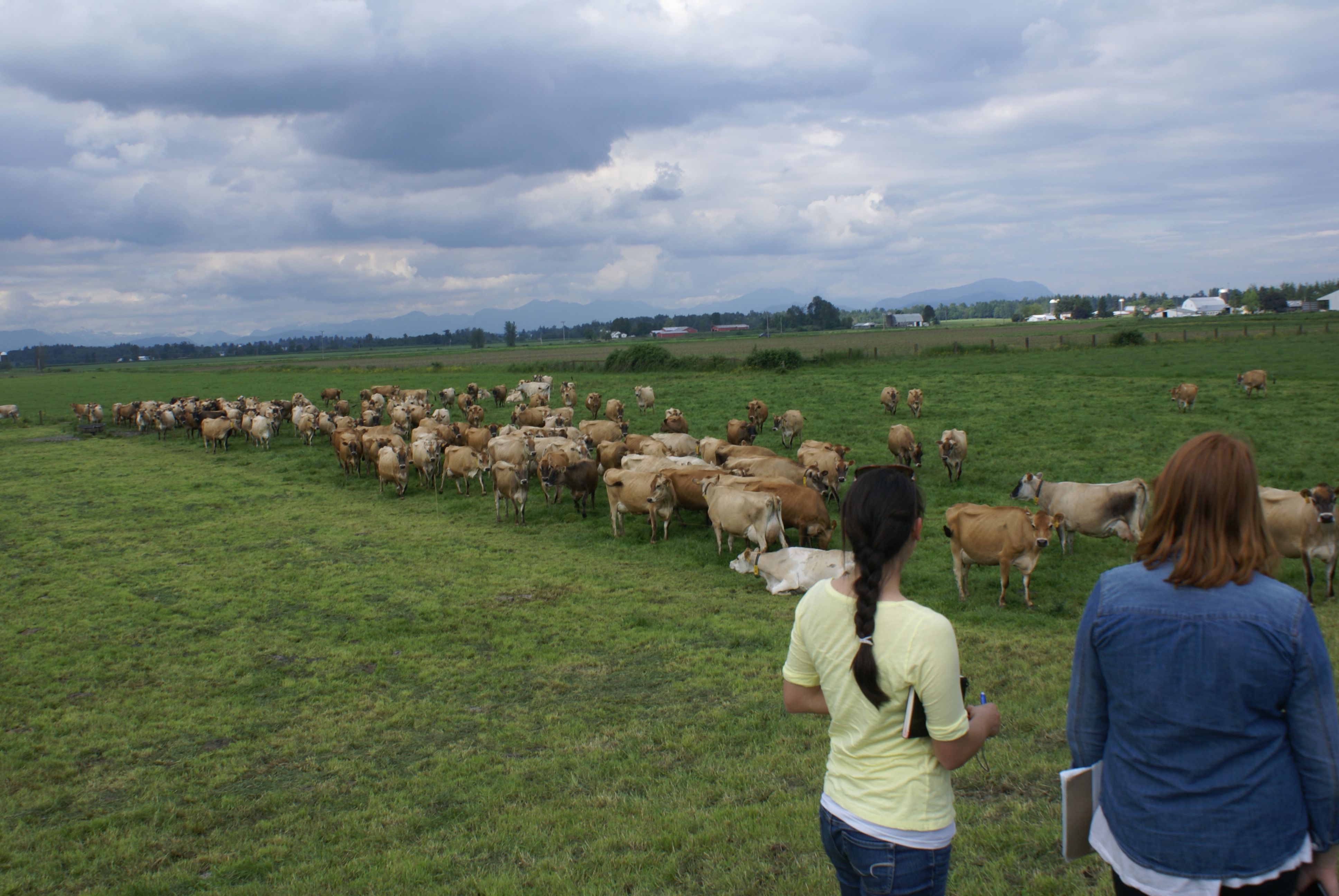Home Page
Requirements
Course Schedule
Discussion Board
Email the Class
READINGS
Introduction
Forest General
Forest Local
Forest Post-Trip
Aquaculture Ecology
Aquaculture Politics
Aquaculture Local
Dairy General
Dairy Local
Dairy Post-Trip
FIELD TRIPS
Forest Products
Aquaculture
Dairy
ESSAY
ASSIGNMENTS
Forest Products
Shellfish
Dairy
|
Field Trip on Dairy Farming, Whatcom County, Friday, May 26
TIME
We will meet at our three U-Cars, in the N-2 parking lot in back of Denny Hall, at 6:30 a.m., and be on the road by 6:45. It will take a little over two hours to get to the Whatcom County farming region. We will be hosted by a series of dairy farmers in the area around Lynden. We will be joined by Kate Steensma for the entire day. The agenda is as follows:
- 9:00 Larry Stap's extended family's Twin Brook Creamery. They converted from more conventional dairying to a model of home-bottled, un-homogenized milk about ten years ago, and now they bottle their own milk and sell in retail stores in Whatcom County and around Puget Sound. Larry and his family will show us the bottling plant in action, and discuss stewardship of the land as well as running a business. We will also see the bottling process in action. In addition, they have recently installed milking robots, and we can go see them as well. There will be chocolate milk for sure, maybe cookies to spoil your lunch (see below).
- 11:15 0r 11:30 Darryl vander Haak Dairy's manure digester. This apparatus takes manure from several nearby farms (along with other by-products of agriculture in the area) and puts it through a digestion process that recovers methane to generate electricity and sells it to the local power company. They have recently added a liquid nutrient extraction process that intensifies recycling of nutrients within the local ecosystem. Just last year, it was announced that the vander Haak farm won a
2014 Dairy Sustainability Award. We will meet with a representative from the ANDGAR company, which built and maintains the digester, and it's possible that owner Darryl Vander Haak will also be there to talk to us.
- 12:00 John and Karen Steensma's dairy. This is the farm where Kate, who lectured on Tuesday and will be accompanying us all day, grew up. We will look around the farm and we can also discuss issues of sustainability and ecology as they relate to dairying. We will eat our lunch on their lawn or, in the event of unexpected bad weather, in their barn, while listening to dairyman John and ecologist Karen (Kate's parents) talk about issues of ecology and economy in farm country.
- 2:00 The DeJong Family's Eaglemill Farms. This is the largest dairy we will visit, with over a thousand milking cows and several hundred other stock. They sell milk to Darigold. Rod, the father, was longtime board chairman of Darigold, including during the time when Darigold took a controversial decision to ban recombinant bovine growth hormone (rBST or rBGH). Brothers Jon, Jeff, and Mark now do most of the work of managing the farm. We will tour all their operations.
- 3:30 Hans Wolfisberg's Edelweiss Dairy. This was the first dairy in Whatcom County to produce certified organic milk, and currently sells to Organic Valley. This is the only certified organic dairy that we will visit today. Hans is from a Swiss Dairying background. He also maintains a complex system of rotational grazing.
We will return to Seattle by about 6:30 or 7:00.
WHAT TO BRING
- Check the
weather for the Western Whatcom County area and dress accordingly. It looks to be quite warm, but best not to wear sandals or flip-flops for tramping around pastures. Shorts are fine.
- Wear boots or shoes that will allow you to walk in mud and cow barns
- Bring a lunch; there will be plenty of milk to drink at various places if you like it; otherwise bring water.
- Bring sun protection if the forecast is for sun.
- Most importantly, bring a field notebook, something to write with, and the questions you want to ask the various farmers. If you like to take pictures, bring a camera or be alert to take pictures with your phone, and then we can enjoy a slide show on Tuesday May 31.
WHAT TO DO AFTERWARD
By midnight on Monday, May 29th, post an analytical reflection from the trip. You should reflect on what surprised you, what you learned, and how what questions still remain in your mind about the ecology, economics, and philosophies of dairy farming, and how these might inform your environmental thinking generally.
|





